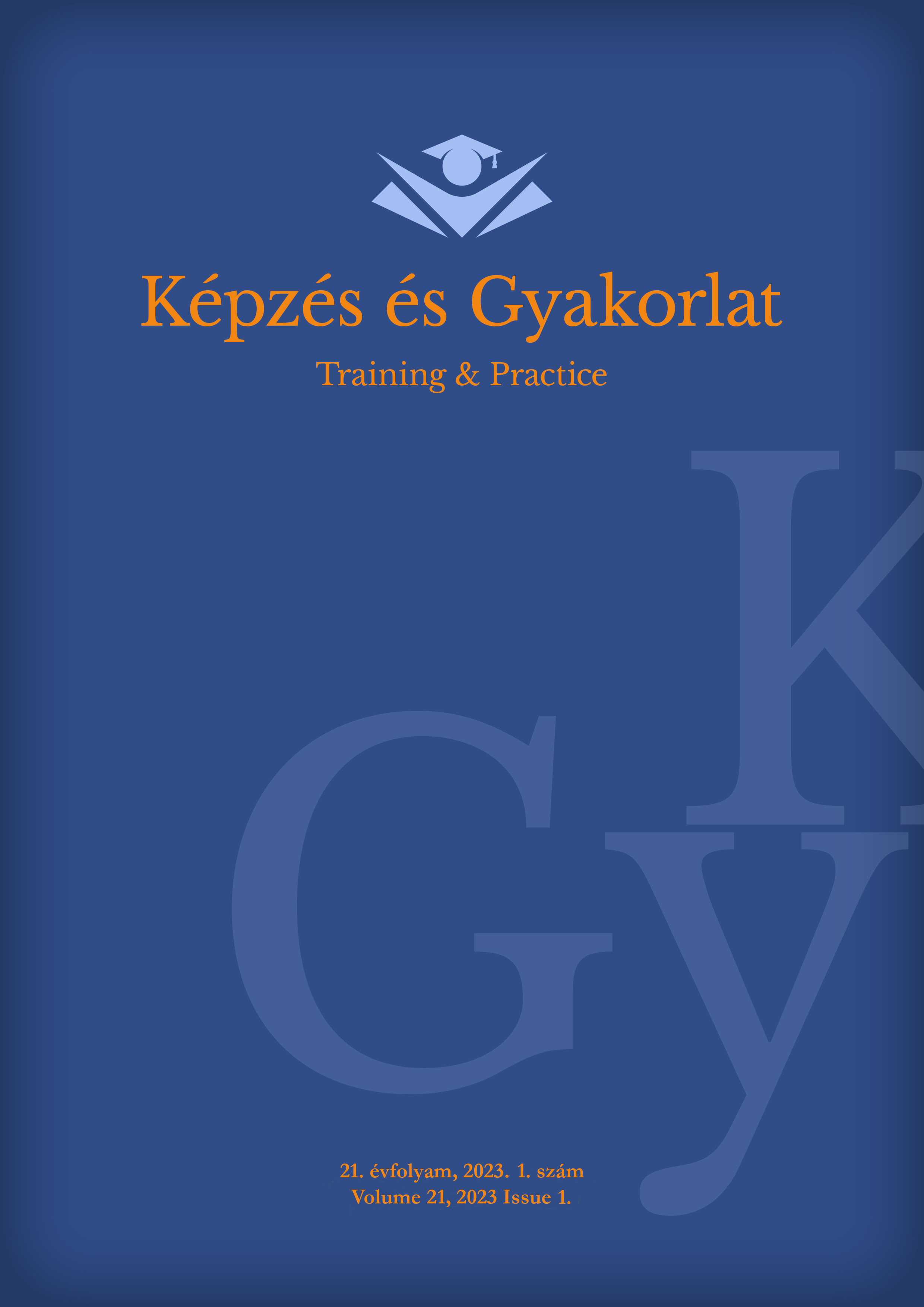Experiences of teachers on the formation of attitudes towards disabilities
DOI:
https://doi.org/10.17165/tp.2023.1.63-74Keywords:
special educational needs, integration, attitude formation, teacher, teacher attitudeAbstract
The documents related to public education contain elements that can promote sensitization of disabilities. According to the National Core Curriculum, the basic principle to be highlighted is the natural acceptance of differences between students. During the overview of the framework curricula, it can be seen that the development of social competences is constantly present in relation to the curriculum. In the area of social sensitization, public education institutions, as well as the pedagogues who perform educational work in them, play a major role. As essential players in public education, it is important how practicing teachers think about the feasibility of sensitizing people with disabilities in Iran, and what opportunities are available to them.
In the course of this empirical research, among teachers (n = 243) working in lower secondary, majority primary schools, an online and paper-based questionnaire was used to assess whether the method of shaping attitudes towards disabilities is used in some form in the classes they teach. In the light of the results, the surveyed population proved to be open to sensitizing occupations and programs, but without external professional help, their application is characteristically negligible. Few of the sensitizing programs are known, only a small group participates with their class in events held at external locations. More people take advantage of the opportunities within the educational institution, joining sensitizing programs or discussing this within the topic of the class teacher's lesson.
Among the subjects, they mostly encountered the topic of disability, or an illustration related to it, in connection with Ethics and Hungarian literature. If they encountered disability in connection with the curriculum, almost all teachers deepened their awareness of disabilities by imparting related knowledge. Almost half of the responding teachers do not know the guidelines and opportunities in the documents related to public education (National Core Curriculum, Framework Curriculum, Textbooks) that create an opportunity to form a point of view.
References
A 2011. évi CXC. törvény a nemzeti köznevelésről. Letöltés dátuma: 2022. 12. 21. forrás: https://njt.hu/jogszabaly/2011-190-00-00
Az 5/2020. (I. 31.) Korm. rendelet: A Nemzeti alaptanterv kiadásáról, bevezetéséről és alkalmazásáról szóló 110/2012. (VI. 4.) Korm. rendelet módosításáról. Magyar Közlöny 17, 290–446. Letöltés dátuma: 2022. 12. 21. forrás: http://geogo.elte.hu/images/MK_20_017.pdf
Horváthné Moldvay, I. (2006). Attitűdvizsgálat pedagógusok körében az integrált nevelésről. Iskolakultúra, 16(10), 81–97.
KSH (2021). Általános iskolai nevelés, oktatás, 2020/2021. KSH honlapja. Letöltés dátuma: 2022. 12. 21. forrás:https://www.ksh.hu/docs/hun/xftp/idoszaki/oktat/alt-iskola2021/index.html
Némethné Tóth, Á. (2009). Tanári attitűdök és inkluzív nevelés. Magyar pedagógia, 109(2), 105–120.
Szabó, D. (2016). Látlelet a pedagógusok befogadó neveléshez-oktatáshoz való hozzáállásáról. Iskolakultúra, 26(4), 21–36. https://doi.org/10.17543/ISKKULT.2016.4.21
Szegő, Á. (2008). Pedagógusok attitűdje az integrált oktatással kapcsolatban. Alkalmazott pszichológia, X(3–4), 21–34.
Szemereiné Szigethy, E. (2018). Befogadói attitűdvizsgálat Somogy megyei többségi iskolák pedagógusai körében. In: Hanák, Zs. (Ed.) Az iskolai sikeresség pedagógiai-pszichológiai háttere. (pp. 177–193). Eszterházy Károly Egyetem Líceum Kiadó.
Tóth-Szerecz, Á. (2015). Sajátos nevelési igényű gyermekek az iskolarendszerben, inkluzív nevelés. Iskolakultúra, 25(11), 115–120.
Tóth-Szerecz, Á. (2022). A fogyatékossággal kapcsolatos szemléletformálás lehetősége a hatályos köznevelést meghatározó dokumentumokban. Új Pedagógiai Szemle, 72(9–10), 77–97.
Varga, J. (Ed.) (2019). A közoktatás indikátorrendszere 2019. Közgazdaság- és Regionális Tudományi Kutatóközpont Közgazdaság-Tudományi Intézet. Letöltés dátuma: 2022. 12. 21. for-rás: https://kti.krtk.hu/wp-content/uploads/2020/01/A_kozoktatas_indikatorrendszere_2019.pdf
Downloads
Published
Issue
Section
License

This work is licensed under a Creative Commons Attribution-NonCommercial-NoDerivatives 4.0 International License.












